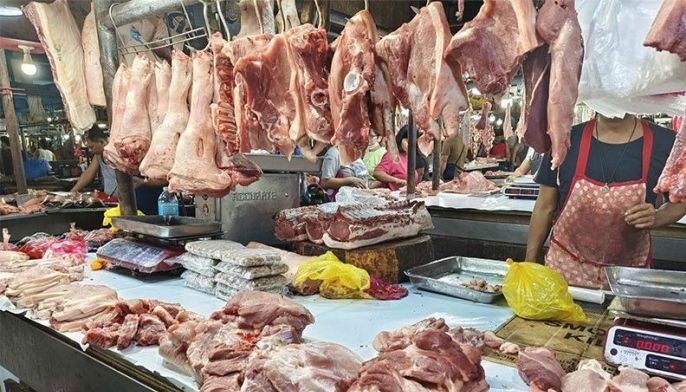MANILA, Philippines — The country’s meat imports in the first five months rose by almost 10 percent to over 500,000 metric tons (MT) driven by higher demand for beef, pork and chicken meat from abroad.
Latest Bureau of Animal Industry (BAI) data showed meat imports from January to May reached 524,675.138 MT, about 46,347 MT higher than the 478,327.366 MT recorded volume in the same period last year.
Pork imports, which account for 48 percent of overall volume, grew by 10.6 percent year-on-year to 253,548.456 MT from 228,201.857 MT a year ago.
Chicken meat purchases abroad during the five-month period hit 181,232.9 MT, about five percent over the 172,627.968 MT imported in the same period last year.
Meanwhile, BAI data showed beef imports expanded by almost 29 percent year-on-year to 68,527.294 MT from 53,211.085 MT.
However, BAI data also showed that imports of duck meat, lamb and buffalo meat declined on annual basis in the first five months of the year.
Buffalo meat imports fell by 10 percent to 20,435.704 MT from 22,672.396 MT, based on the latest government data.
The country’s duck meat imports declined by 40 percent year-on-year to 84.255 MT while lamb meat imports fell by almost half to 199 MT from 384 MT, based on BAI data.
Turkey meat imports, meanwhile, skyrocketed by 620 percent to 647.53 MT from 90 MT last year.
Industry players attribute the higher meat imports this year to stocking up by some players in anticipation of higher prices abroad coupled by continuous depreciation of the peso and drop in local output due to El Niño.
The industry earlier noted that consumers have been looking for cheaper alternatives to pork, such as chicken and perhaps now beef.
The country has been grappling with production woes caused by the African swine fever and bird flu on pork and chicken supplies, respectively.


